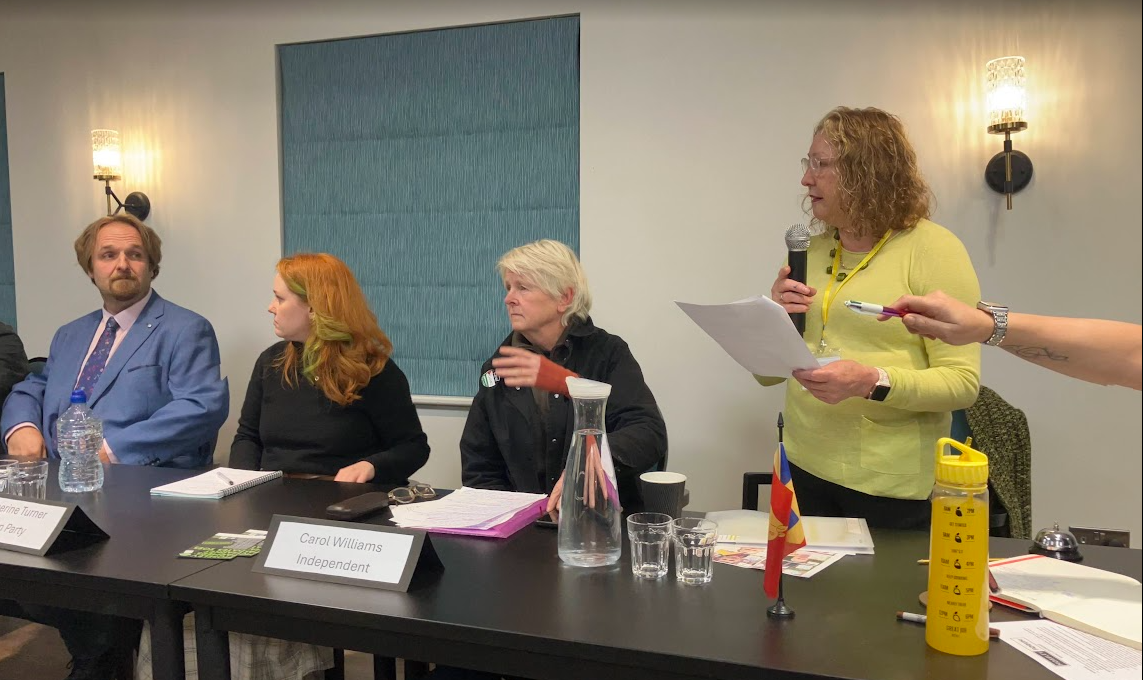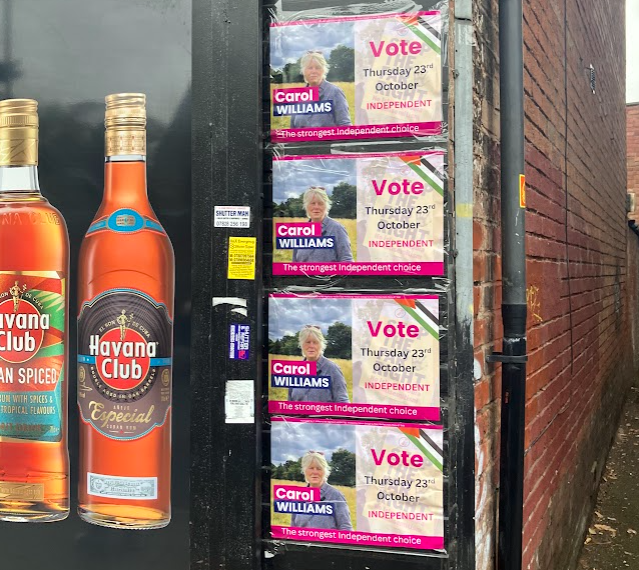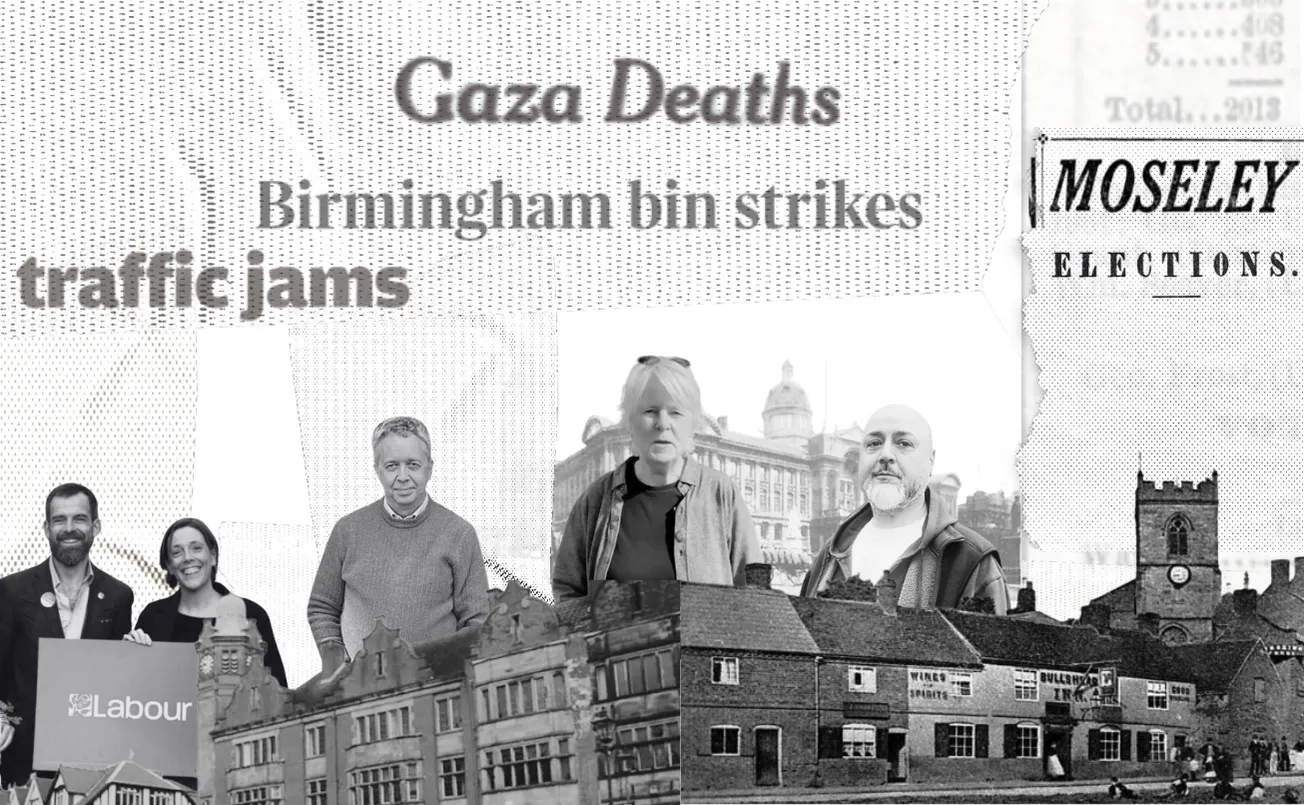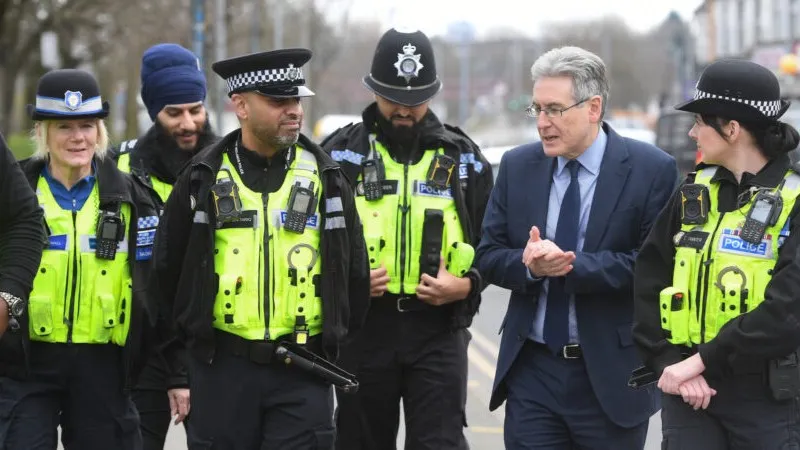Good morning readers — did you know about the secret society of Brummie ‘moderate’ trade union leaders that plotted the downfall of the Labour party’s left-wing leader in the 1980s?
Us neither, until Samuel filed today’s bumper politics special. And boy does this edition offer a bit of everything that makes The Dispatch unique. We’ve got an update on our exclusive about the Small Heath Labour councillor and his fugitive brother and Samuel is on the ground in Moseley, ahead of a by-election that could predict which way Birmingham will swing next year.
Plus, there’s a fascinating featurette examining how Methodists in the West Midlands paved the way for Labour’s dominance in Birmingham today (but for how much longer?).
Correction 16/10/2025: An earlier version of this article suggested independent Moseley candidate Carol Williams had been endorsed by Jeremy Corbyn. This isn't the case and has been removed.
Brum in Brief
🫸 Labour have barred Small Heath councillor Saqib Khan from standing in next year’s local elections following an exclusive story reported by The Dispatch. Last week we revealed that Cllr Khan had attended his brother’s wedding, while the latter was on the run from the police. Fahan Khan fled the country while police were investigating him and others from Birmingham for dealing crack cocaine and heroin to Aylesbury in 2019; he was sentenced in absentia last year. At the time of Fahan’s conviction, Thames Valley Police called for anyone with information on his whereabouts to come forward. But Facebook photos from Fahan’s 2023 Kashmir wedding, discovered by The Dispatch, suggested Cllr Khan might have more knowledge on the situation than previously thought — the snaps show he attended the event. On Monday, sources told us that Labour had reversed their decision to select Cllr Khan as a party candidate for the 2026 elections. A spokesperson for West Midlands Labour told The Dispatch: “Following media reports that brought new information to light, a review was carried out in accordance with our selection procedures. As a result, Cllr Saqib Khan has been removed from the panel of approved candidates for the May 2026 local elections.”
🗑️ Sky has published footage of a manager telling bin workers they will be blacklisted by the council if they join in the ongoing strikes. The video, which was taken on a mobile phone last Thursday at a meeting at Atlas depot, shows a manager who works for the sub-contracted agency Job&Talent addressing staff. He tells them he has recently spoken with senior council officers and “those people that do decide to join the picket line, then the council have confirmed to us that they are not going to get a permanent job.” In a statement, Job&Talent claimed the comments were part of a longer discussion and do not reflect the agency's official position. A spokesperson for Birmingham City Council said “Blacklisting will not be tolerated. We will immediately begin an investigation to ascertain the full facts.”
🚱 Dozens of tower block residents in the city centre have gone without water for five days, leaving them parched and without the ability to flush their toilets. Managers of Beetham Tower building said they were going to install new pumps to address the issue. (BBC).
🪙 The British museum is trying to raise £3.5m to buy a gold heart pendant that was made for Henry VIII’s daughter and found in a Warwickshire field. Charlie Clarke, a Birmingham cafe owner and amateur metal detectorist, made the discovery in 2019. Now it has been valued, the museum has until April 2026 to raise enough money to buy it. Nicholas Cullinan, director of the British Museum, said: “The Tudor Heart is perhaps one of the most incredible pieces of English history to have ever been unearthed.” (GB News + Guardian).
We’ve got an update. At the beginning of October, we shared an ambitious goal: that we want to add 200 new paying subscribers to The Dispatch members list by the end of the month. Why? So we can make this paper pay for itself: properly independent news Birmingham and the West Midlands can be proud of.
So many people have got behind us. We’ve only got 137 people to go before we hit our target. We’re just over halfway through the month — if 38 people sign up today, for just £1 a a week for the first three months, well: it’s within touching distance. Could we actually do it?
If you need persuasion to join, other than the fact The Dispatch is doing old-fashioned, in-person reporting that actually holds Birmingham's movers and shakers accountable, why not check out some of our recent members’ only stories? There’s the investigation into how the council ended up accusing parents of a debt ridden school of bullying, or our expose of the Bromsgrove businessman who’s raising money from Brummies for flag raising— via a non-existent company. If you think this is the sort of journalism Birmingham needs, hit the button below to help us reach our October goal.

Moseley is a very particular place: more racially and economically diverse than Birmingham's increasingly homogenising inner and outer suburbs and demographically older than the trendy city-centre quarters like the JQ and Digbeth. The ‘village’ as it is affectionately known is full of vast Victorian mansions and crumbling HMOs alike, once the haunt of 1960s bohemia and 1990s Britpoppers, the area has become a stronghold of wealthy boomers, some young professionals squeezed into attic flats and a large group of people negotiating temporary housing and poverty.
A few months ago, one of Moseley’s sitting councillors, the Labour representative Kerry Jenkins, sadly died, triggering a by-election. This has prompted an electoral battle between the Liberal Democrats, Labour, two left-wing independent candidates, Reform, the Greens and the Tories for control of the leafy south Birmingham seat.
Consequently, a Moseley by-election could be a ‘bellwether’ for the entire city — to paraphrase the News of the World: “all human life is there.” Yet, I’m not so sure. This by-election feels competitive, and unusually for Birmingham no one group of ‘stakeholders’ seems to be in charge.
At first glance, Moseley seems to be a battle between the establishment centre-left represented by Labour and the Liberal Democrats (who already have a councillor here in Izzy Knowles) and the radical left split between the progressive candidacy of Carol Williams and the more socially conservative campaign of Danny Mazhar (who has associated with George Galloway’s Workers Party).
The Greens and Reform are also running: but Moseley doesn’t strike me as being middle-class enough to attract large Green support. On the face of it, Moseley should also be antithetical to Reform success: its urban, 52.4% of its population are ethnic minorities, and it doesn’t immediately strike one as “left-behind.” However, many I talk to tell me that Reform might actually do better than expected: trading on their candidate’s South Asian heritage, widespread opposition to low-traffic-neighbourhoods (LTNs), cycle lanes, and a growth in socially disruptive exempt accommodation. Unfortunately, Reform’s man: Aysan Al-Haq declines an interview.
The contrasting mix of political ferment and widespread apathy I have witnessed in Moseley over the last few days could be an outlier or deeply representative of Birmingham’s outlook in 2026 — when its denizens go to the polls in May. To employ a cliche, ‘only time will tell.’

A few days walking around Moseley reveals the apathy. In all that time, I only spot one political poster: a hastingly taped up sheet of paper on an off-license urging Moseleyites to vote for Carol Williams, a Socialist Workers Party member. Otherwise, ‘the village’ feels sleepy, easing itself into autumn. One Moseley resident I talk to who follows local politics closely, tells me he hasn’t received any leaflets or door knocks from the Conservatives or Greens in the last couple of weeks — and local social media discourse is unusually quiet. He points out to me that there was a general and mayoral election last year and a full council election coming up next year — people are politically fatigued.
However, at a late night hustings held for the councillors yesterday, Moseley’s political ferment finally emerged.
Birmingham deserves great journalism. You can help make it happen.
You're halfway there, the rest of the story is behind this paywall. Join the Dispatch for full access to local news that matters, just £8/month.
SubscribeAlready have an account? Sign In







